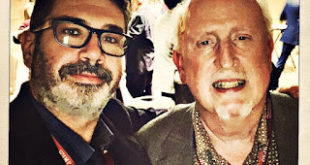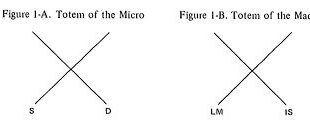New working paper published by the Centro di Ricerche e Documentazione Piero Sraffa. From the abstract: This paper critically analyzes Geoffrey Hodgson’s definition of heterodox economics as the refutation of the orthodox view that emphasizes utility maximization as its main theoretical core, and his view that it is the fragmentation of heterodox economics that explains its subsidiary role within the profession. Hodgson’s views led to a series of responses, that criticize his definition, but...
Read More »Book Presentation “India from Latin America. Peripherisation, Statebuilding, and Demand-Led Growth” by Manuel Gonzalo
[embedded content]A demand-led growth perspective of Indian development. Book available here. Comments by Alex Thomas.
Read More »Barkley-Rosser Jr. (1948-2023)
At the ASSA in San Diego, before the pandemic It is hard to believe that Barkley has passed away. I met Barkley long ago, when I was still a PhD student in the 1990s, at the Eastern Economic Association Meeting, which still is one of the organizations that congregates both mainstream and heterodox economists with some degree of interaction. Perhaps the only such conference that still exists in the US. Barkley moved in between the mainstream and the heterodoxy. He should be seen, to a great...
Read More »What is heterodox economics? Some clarifications
Long ago I wrote on the meaning of heterodox economics. I suggested that it should be defined in its own terms, not as a reaction to the mainstream or orthodox approach, and as a unified set of propositions.[1] In other words, heterodox economics would be a set of principles that would be backed by a certain community. Of course, the sociology of that community would lead to some degree of debate and dissent within heterodoxy, as it is in fact the case within the mainstream. There is, one...
Read More »Beyond Vulgar Economics: Conceição Tavares and Heteredox Economics
My paper (in Spanish) for a book on social thinkers in Latin America edited by Marcelo Rougier and Juan Odisio, and that I presented in a few venues since 2020, is now revised and done. The book includes chapters on Raúl Prebisch, Aníbal Pinto, Víctor Urquidi, Celso Furtado, Juan Noyola Vázquez, Helio Jaguaribe, Aldo Ferrer, and Osvaldo Sunkel, besides mine on Maria da Conceição Tavares. A version available here.
Read More »What’s Left of Cambridge Economics?
A new piece by Jamie Galbraith on Project Syndicate, that reviews some recent books, but deals essentially with what happened to heterodox economics, a theme that has been treated here often (on the definition of heterodox economics go here). Jamie provides an apt definition, on the basis of what he got at Cambridge back in the 1970s. In his words:When I attended the University of Cambridge in 1974-75, I read Keynes, met Piero Sraffa, listened to Joan Robinson, and studied with Kaldor, Luigi...
Read More »On Garegnani’s contributions to economics
[embedded content]My initial comments at the seminar on the legacy of Pierangelo Garegnani's contributions to economics organized by the Italian Post Keynesian Network. The full seminar here.
Read More »Gatekeepers and herd behavior: On Tooze and the radicalization of Krugman
"But that one is holding the poop!"Adam Tooze, the author of the monumental Crashed (who was, incidentally, student of Wynne Godley, one of my mentors), wrote a piece for the London Review of Books that has received a lot of praise. While it reviews Paul Krugman's latest book, it provides an overview of the radicalization of New Keynesians, or at least some, that dominate both in academia, and in the corridors or power. The gatekeepers of knowledge and academic and intellectual influence,...
Read More »Life among the Econ: fifty years on
By Thomas Palley (Guest blogger)Almost fifty years ago, the Swedish econographer Axel Leijonhufvud (1973) wrote a seminal study on the Econ tribe titled “Life among the Econ”. This study revisits the Econ and reports on their current state. Life has gotten more complicated since those bygone days. The cult of math modl-ing has spread far and wide, so that even lay Econs practice it. Fifty years ago the Econ used to say “Modl-ing is everything”. Now they say “Modl-ing is the only thing”. The...
Read More »A delightful read
Recensione su Brave New Europe Grazie Mat! Heterodox Challenges in Economics by Sergio Cesaratto February 24, 2021 Book Review by Mathew D. Rose I never thought that I would describe an economics book as “a delightful read”, but “Heterodox Challenges in Economics” by Sergio Cesaratto is exactly that. It is well written, often entertaining and humorous, and explains a great deal about political economy, which is then applied in an analysis of the...
Read More » Heterodox
Heterodox



